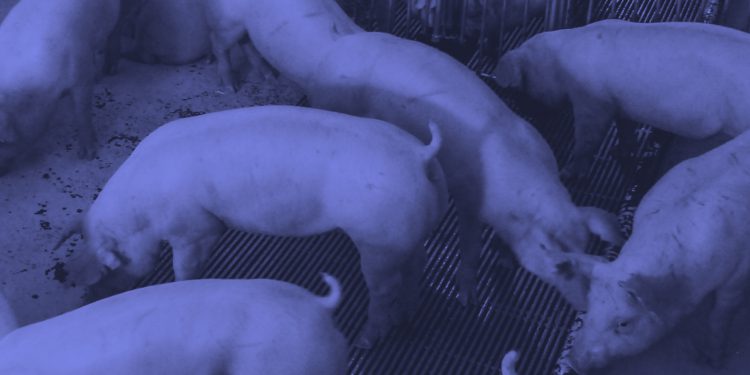Intensively farmed protein like pork, beef, dairy and fish, could incubate the next pandemic, according to a new working paper for investors.
The investor network FAIRR found that 63 per cent of 60 companies surveyed are high risk, meaning they perform badly against factors that could lead to new diseases.
This was a small improvement on last year when 73 per cent of companies were considered high risk.
The greatest risk to emerging disease was land use, or deforestation to make way for agriculture. This puts human and domestic animals in closer touch with wildlife whose germs, though harmless to them, are dangerous to humans.
Chinese meat processor Sunner was the worst performing business. Although none of the 60 companies achieved “best practice” status, the lowest risk were seafood companies, with Norway’s Mowi topping the table.
Other risk factors ranked include working conditions. FAIRR found that only 10 per cent of companies provide sick leave for all workers, leading to higher infection rates. It said livestock workers and their communities faced 51 to 75 per cent higher Covid-19 contagion rates and 37 to 50 per cent more deaths.
“98 per cent of the companies are ranked high risk for the pollution they create”
It said that by May last year, US meatpacking plants had seen an estimated 334,000 Covid-19 infections.
Antibiotic use in animals remained high with 64 per cent of companies falling into the high risk category, although it was an improvement on the 77 per cent of last year. Over use of antibiotics in animals is leading to a resistance in humans, meaning when we are sick, antibiotics are less effective.
98 per cent of the companies are high risk because of their pollution levels, including waste water created and the poor handling of manure.
75 per cent of the companies are considered high risk for deforestation and biodiversity loss.
Dr Maria Neira, Director of the Department of Public Health and Environment at the World Health Organization (WHO), said, “The way we produce and consume food is pushing the natural world to its limits.”
Alex Burr, ESG policy lead at Legal & General Investment Management, added, “The FAIRR Emerging Disease Ranking is a wakeup call for the meat industry.”























